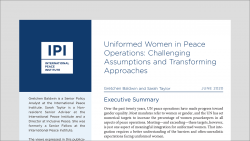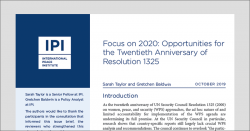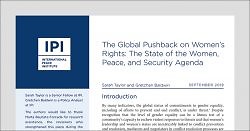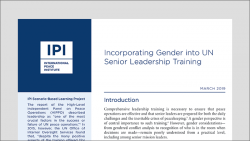
Over the past twenty years, UN peace operations have made progress toward gender equality. Most of their mandates refer to women or gender, and the UN and member states have agreed to numerical targets to increase the percentage of women peacekeepers. Meeting, and exceeding, these targets, however, will require the UN to better understand the […]
Read more










